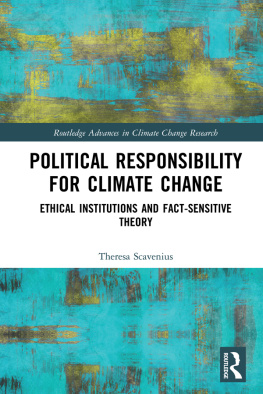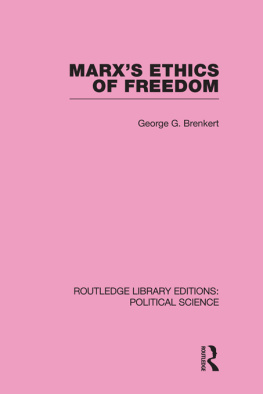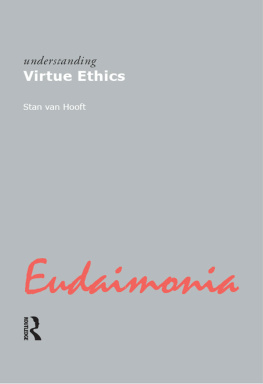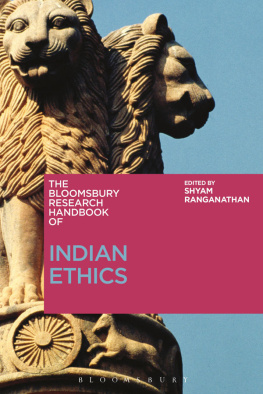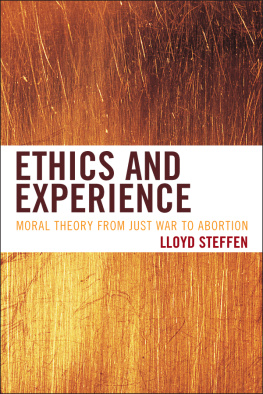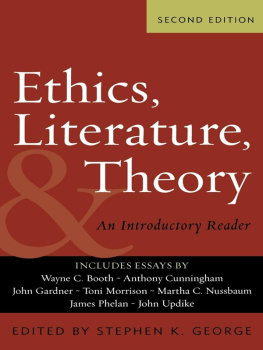Praise for
Just War Reconsidered: Strategy, Ethics, and Theory
Dubiks new book, Just War Reconsidered, examines conduct in war not in the traditional terms of the morality of war; or of a given war, per se; or from a primarily tactical point of view, e.g., whether civilian casualties can be justified; but from a new perspectivethe morality of executing strategies not capable of meeting the war aims. Given Americas experience in most major ground wars since World War IIKorea, Vietnam, Iraq, Afghanistanthis perspective is profoundly useful. Diplomats and statesmen and stateswomen will benefit from his insights as much as military officers, as the ultimate determination of war aims is a civilian responsibility, and determining the proper strategy to execute it a combined military-civilian endeavor. I wish we had had such insights before we made fateful decisions on Vietnam and Iraq.
James Jeffrey, former U.S. Ambassador to Iraq,
Turkey, and Albania
Although much has been written about the ethics of fighting wars, much less attention has been paid to the ethical responsibilities of senior military and political leaders who plan those wars. This work, written by a distinguished general with vast experience across a range of American conflicts, remedies this omission. Clearly written and persuasively argued, Just War Reconsidered will be treasured by ethicists, historians, and the interested public.
Steven R. David, Johns Hopkins University
Just War Reconsidered examines a timeless topic: moral leadership at the strategic level of war. Dubiks five principles for waging war justly provide a framework for judging the moral agency of senior leaders, civilian and military, in their war-waging responsibilities.
Lance Betros, author of Carved from Granite: West Point since 1902
Dubiks own experience as a military leader has clearly given him a keen sense of civil-military leadership dynamics and of the practical realities of war that is not available to most academics or business experts, and this lends great authority to his perspective.
Scott Segrest, author of
America and the Political Philosophy of Common Sense
Just War Reconsidered
BATTLES AND CAMPAIGNS
The Battles and Campaigns series examines the military and strategic results of particular combat techniques, strategies, and methods used by soldiers, sailors, and airmen throughout history. Focusing on different nations and branches of the armed services, this series aims to educate readers by detailed analysis of military engagements.
SERIES EDITOR: Roger Cirillo

JUST
WAR
RECONSIDERED
Strategy, Ethics, and Theory
JAMES M. DUBIK
Foreword by
General Martin Dempsey, USA (Ret.)

Due to variations in the technical specifications of different electronic
reading devices, some elements of this ebook may not appear
as they do in the print edition. Readers are encouraged
to experiment with user settings for optimum results.
Copyright 2016 by James M. Dubik
Published by the University Press of Kentucky
Scholarly publisher for the Commonwealth,
serving Bellarmine University, Berea College, Centre College of Kentucky, Eastern Kentucky University, The Filson Historical Society, Georgetown College, Kentucky Historical Society, Kentucky State University, Morehead State University, Murray State University, Northern Kentucky University, Transylvania University, University of Kentucky, University of Louisville, and Western Kentucky University.
All rights reserved.
Editorial and Sales Offices: The University Press of Kentucky
663 South Limestone Street, Lexington, Kentucky 40508-4008
www.kentuckypress.com
Library of Congress Cataloging-in-Publication Data
Names: Dubik, James M., author.
Title: Just war reconsidered : strategy, ethics, and theory / James M. Dubik.
Description: Lexington, Kentucky : University Press of Kentucky, [2016] | Series: Battles and campaigns | Includes bibliographical references and index.
Identifiers: LCCN 2016025073| ISBN 9780813168296 (hardcover : alk. paper) | ISBN 9780813168302 (pdf) | ISBN 9780813168319 (epub)
Subjects: LCSH: Just war doctrine.
Classification: LCC U21.2 .D73 2016 | DDC 172/.42--dc23
LC record available at https://lccn.loc.gov/2016025073
This book is printed on acid-free paper meeting the requirements of the American National Standard for Permanence in Paper for Printed Library Materials.

Manufactured in the United States of America.

| Member of the Association of
American University Presses |
Contents
by Martin E. Dempsey
Foreword
Thirty years ago, Major Jim Dubik and Major Marty Dempsey would often run together through the hills of the Hudson valley when we werent teaching English composition and philosophy classes at West Point. We would talk about the military profession, about the use of force, about the relationship of the military with our society, and about the nature of war. Those conversations remain among the highlights of my professional education.
Those were formative days for two young majors who would go on to serve the nation in positions of significant responsibility. Therefore, it was no surprise to me that Jim Dubik would reflect not only on his own experiences but also on the experiences of our nation and its military over the past decade and write a bookan important bookon the ethics of war at both the point of execution on the battlefield and the point of decision in our nations capital.
In a period of history that is being defined by persistent conflict, ubiquitous information, yet near-extreme uncertainty, Dubik offers us seven war-waging responsibilities that provide an important intellectual framework and a useful ethical road map for military leaders and elected officials alike.
Just War Reconsidered is a book not about personalities but about principles. It is a book that examines the ethics of the nations choices, decisions, and consequences over time. It is pragmatic. It is innovative. Dubik asserts that the principles of jus in bello are no longer confined to actions on the battlefield. That is an assertion with obvious and profound implications.
Just War Reconsidered will surprise, discomfort, and ultimately enlighten those interested in how the nation wields the military instrument of power. Dubik challenges us to understand and confront our responsibility not only to fight wars ethically but also to wage wars ethically.
As he cautions us: The difficulty of conditions that may mitigate responsibility does not erase it.
We will be better prepared to live up to our ethical responsibilities in waging war with this book in our rucksack or briefcase.
Martin E. Dempsey
General, USA (Retired)
Eighteenth Chairman of the Joint Chiefs of Staff
Prologue
America may be tired of war, but war does not yet seem to be tired of America. As I wrote Just War Reconsidered, the United States entered its fourteenth year of war. America reengaged in the Iraq war that President Obama once declared was over, and in Syria it has still not decided what to do even as it conducts air strikes and attempts to arm selected rebels. The administration has been forced to delay its decision to withdraw from Afghanistan. Libya is a divided state, even after a NATO humanitarian intervention that ended in regime changeand some say because of it. In other Middle East countries, the hope of the Arab Spring has been replaced with spreading flames of violence, insurgency, and civil war. ISIS (the Islamic State in Iraq and Syria) has declared an Islamic state formed out of parts of Iraq and Syria and is in competition with al-Qaeda for leadership of radical Islamists. None of this will end by itself.
Next page



